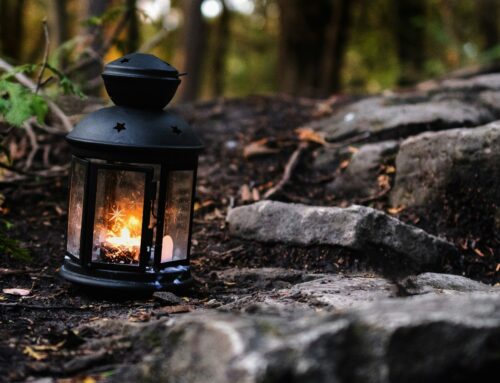
Ending Suffering – When Enough is Enough: Part 1
His name is Gene Sprague. He paces the Golden Gate’s walkway at its highest point, occasionally stopping to gaze down at the water more than 200 feet below. Immersed in their picture-taking, nearby tourists fail to notice him.
His pacing stops, he brushes his long black hair from his face, pushes himself into a sitting position on the handrail, pauses for a moment as if to reflect one last time on what he is about to do.
Abruptly, he rises to stand on the handrail and then, quite simply, he leans back into empty space.
Since launching this blog earlier in the year I’ve received a steady diet of phone calls or emails from individuals in varying degrees of pain. They contact me, I suppose, believing that if a train wreck like me can appear to turn things around then surely I’ve stumbled across some secret formula that can help them overcome their own suffering.
I wish I did. I wish I could tell them that I found eternal peace and happiness through the ingestion of ayahuasca or antidepressants; by contemplating my childhood on a psychiatrist’s couch or squatting in a sweat lodge; by engaging in various “spiritual” practices or fasting in the desert. I wish I could say that the thousands of dollars and months of time I spent traipsing all over creation in search of an existential analgesic did the trick.
But the truth isn’t quite so convenient. To be sure, each of my experiences over the past few years helped, but only as a temporary salve to much deeper wounds that had a stubborn way of festering back to the surface. It’s a story familiar to us all, isn’t it? We overcome the pain of a divorce only to find ourselves smack in the middle of a second or third marriage with the same problems. We clamber onto the wagon to dry out and then fall right back off. We are temporarily rejuvenated by the new diet, psychotherapy regimen, partner, job, home, self help guide or spiritual text – only to once again find ourselves a few months later feeling angry, lost or despairing.
So what at last helped turn the tide for me? What can I possibly offer another who also might be suffering? What would I say to a Gene Sprague if I encountered him on the bridge?
Life is Suffering
“Life is suffering.” It is the first of the Buddha’s Four Noble Truths. Countless mystics, poets, prophets and philosophers have more or less echoed the same thing. Jesus warned that we’d continue to suffer until we “overcame the world.” Thoreau wrote that most of us “lead lives of quiet desperation.” I could go on with these but you get the idea.
So why for decades did I nod knowingly at such sentiments and then go about my life behaving as if they weren’t true? Why did I continue to express shock at the latest news of a friend or family member’s cancer, divorce, addiction, accident? Why did I treat suffering as an aberration to be gotten through as quickly as possible rather than the norm? After all, if life is suffering these events should come as no surprise.
Like most, I spent my life buying into the central egoic conceit that “life is good.” I strived for good things, good times, good people, always picturing happy, sunshiny days just around the next bend. Yes, yes, polls showed an overwhelming majority of people hated their jobs; virtually every marriage was either dead or doomed; so many people were taking antidepressants that city drinking water was contaminated with its collective residue (and the rest of the population required booze, drugs, sex or some other “high” to get through the day); and on any given day huge portions of the planet seemed hellbent on self-destruction.
And then there was that whole ‘death’ thing lurking on the horizon for each of us. Still I told myself, ‘life is good, I am an optimist,’ and I will show the world how happy and successful and upbeat I can be. It never occurred to me that the seeds of my suffering might lie in my unconscious allegiance to this mass delusion.
So when bouts of pain or suffering arose, I worked with great clarity of purpose to put an end to them and reapply the smile that life demanded of me. For a time the simple existence of my own youth sufficed. So many tomorrows stretched before me that surely the arrival of a permanent happiness was only a matter of time. By my 30s the responsibilities of marriage and children intensified the pressures and simple hope wasn’t enough: self-help books, psychotherapy, and better living through chemistry were employed.
By middle age, however, time was no longer on my side and the old palliatives simply were not working. I was on the back nine of life with more days behind than ahead and in a world where “I” existed only in relation to the existence and accomplishments of others, well, I wasn’t doing a very good job keeping up with the Joneses. On the cusp of 43 I was the divorced father of two, in the span of 24 hours my latest and greatest girlfriend and most lucrative job both called it quits on me and years of karmic baggage sent me crashing to my knees. For the first time in my life I genuinely started thinking about doing my own bridge walk.
Walking the Bridge
Gene Sprague is one of the central figures in The Bridge, a haunting documentary that attempts to shed some light into what went on in the minds of individuals who leapt from San Francisco’s Golden Gate Bridge over the course of 2004. (The bridge holds the curious distinction of being North America’s foremost destination for suicide as well as its most photographed landmark.)

Usually the intended suicide is seen pacing back and forth along a section of the bridge like some caged, half-mad animal until, suddenly, he or she grasps the handrail, swings across one leg, then the other, hesitates for perhaps a moment or two, and then lets go. We the viewer are led to ask, “What drives a man or woman to reach such a state? What compels a person to overcome the fear of stepping out into empty space?”
I think I know.
In my darkest hours I too paced relentlessly, desperate to escape the maelstrom of thoughts in my head. I wanted to outrun my brain, to become unconscious, to sleep the sleep of the dead. At one of the lowest points I actually craved a baseball bat to the noggin, anything to escape that inner torment.
It may sound insane to anyone who hasn’t been there, but then jumping off the Golden Gate bridge seems pretty crazy too and I’m betting those poor souls were jumping to escape the thoughts that hounded them.
Embracing Suffering
It is a supreme irony that we judge suicides to be “out of their minds” when, in fact, we have it precisely backward: they’re too immersed in their minds, in the thoughts from which they seemingly cannot escape. “The only burden you’ve ever had is your mind,” said Robert Adams, an obscure mystic who died a decade or so ago. Adams and virtually all mystics have long pointed out the same thing: that the human mind is nothing but a collection of conditioned thoughts with which we erroneously identify ourselves.
Or put another way, the thoughts with which I identify determine the “I” that I present to the world. In my case, I felt hopeless, unworthy, guilty, a loser. My suffering had become so acute that no quantity of psychotherapy, drugs, affirmations, or self-help guides were going to convince me that ‘life was good.’ The gig was up. Life sucked and it would always suck.
It was during this period that more than a few well-intentioned friends and family members suggested that I shouldn’t dwell so much on my suffering. The argument seemed to be that by focusing on my suffering I was perpetuating it. Yet as my depression deepened I began to believe just the opposite: that all those years of racing to overcome my suffering, all of that willful denial of life’s intrinsic pain, all that materialist hogwash about life being wonderful was precisely what was keeping me trapped in it.
Maybe all of those well-intentioned types were, themselves, also avoiding some ugly truths? Maybe all that set them apart from me was a sunnier childhood, a better station in life (for now), or a more rigid mental framework?
Perhaps the first step in overcoming suffering was, in fact, to embrace it? Instead of racing for the cure, to borrow from a well-known cancer-fighting theme, maybe I’d be better off abandoning the (human) race altogether to spend some time exploring my existence (and suffering) in earnest?
For the first time I started to understand what Scott Peck of The Road Less Traveled meant when he said that humans were doomed to remain trapped in their suffering until they made a commitment to heal – rather than merely escape – their misery. Humans are lazy, wrote Peck, and would rather pop a pill to run interference with their thoughts than face their own demons. Just get me back into the game, coach! But to repeat, if life is suffering, what, precisely, are we rushing to get back into? After years of bandaid approaches to the effects of my suffering, it was time to go looking for its cause.
So to start the healing process I think one must reach a point of no return, that place within that says, “Enough! I will either get to the bottom of this thing or jump off the bridge but there’s no more in-between, no more bandaids, no more pretending.” When I disappeared into a Utah canyon in April 2006, my commitment was complete: nothing mattered to me except to understand what my life was all about. Life really was suffering. Now it was time to determine why, and perhaps in so doing find the path to genuine inner peace.






